Structural & Acoustics Blog Posts
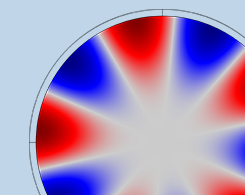
How to Use Dispersion Curves to Analyze Fluid-Filled Pipes
Modeling a fluid-filled pipe is both a time-consuming and computationally expensive process, but there’s a way to streamline the process: a guided wave propagation approach via dispersion curves.
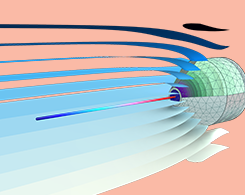
Have You Heard About the Cocktail Party Problem?
You’re at a party with loud music and a ton of people. Despite the noise, you are able to chat with a friend. How is it that you can differentiate his or her voice from all the sounds around you?

Keynote Video: Modeling the Multiphysics Behavior of Nuclear Fuel
A laboratory engineer discusses using multiphysics simulation to understand the complex and challenging behavior of nuclear fuel. Watch his presentation and get a quick summary here.
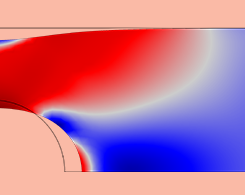
How to Implement Elastoplasticity in a Model Using External Materials
Sometimes the mechanical behavior of a material is not readily expressed in terms of a built-in model. In these cases, you can use external materials. Learn how with an elastoplasticity example.

Keynote Video: Using Simulation to Develop Reliable Audio Transducers
An engineer from a loudspeaker company discusses using simulation to design a component that can handle fatigue, environmental conditions, and user wear and tear. Watch the presentation.
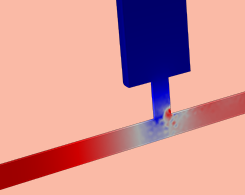
Is That a Ghost? Vibroacoustic Explanations for False Poltergeists
Creepy sounds are often misinterpreted as paranormal activity, when in fact, they can be explained with vibroacoustics, mechanical resonance, and attenuating sound.
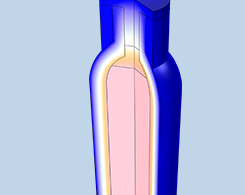
Predicting How Long Coffee Stays Warm in a Vacuum Flask
Do you use a vacuum flask to keep your coffee or tea warm? Try simulating the natural convection cooling in one of these containers to see exactly how long your beverage will stay warm.
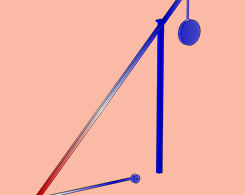
What Is the Physics Behind a Counterweight Trebuchet?
A counterweight trebuchet, a siege weapon commonly seen in movies set in the Middle Ages and fantasy worlds, also happen to be an interesting multibody dynamics problem.
